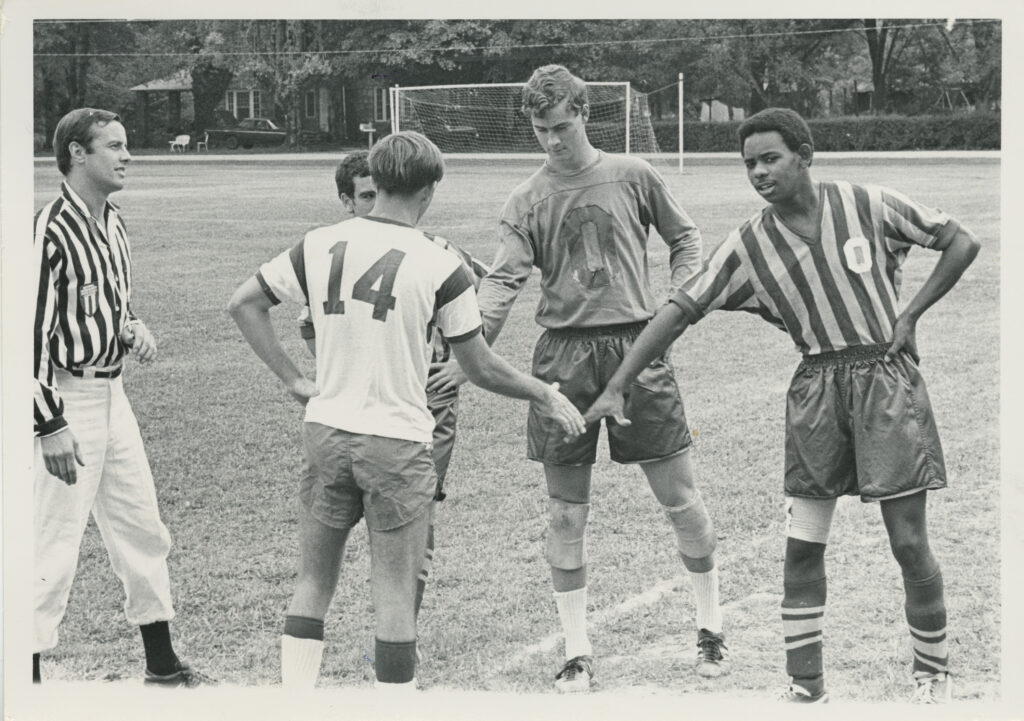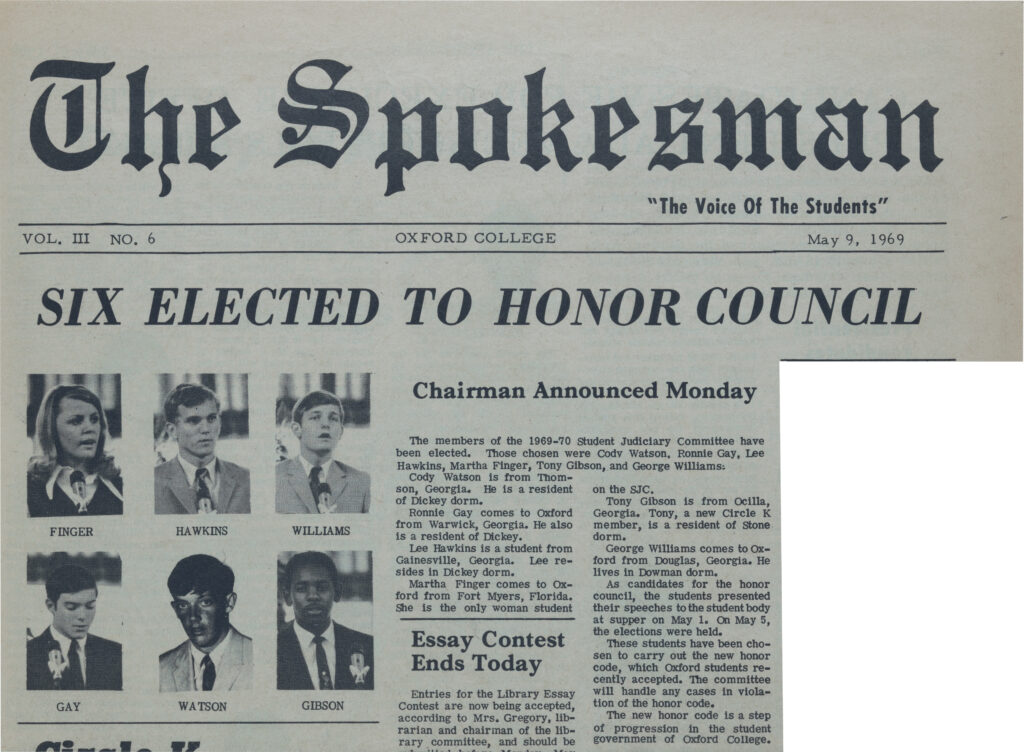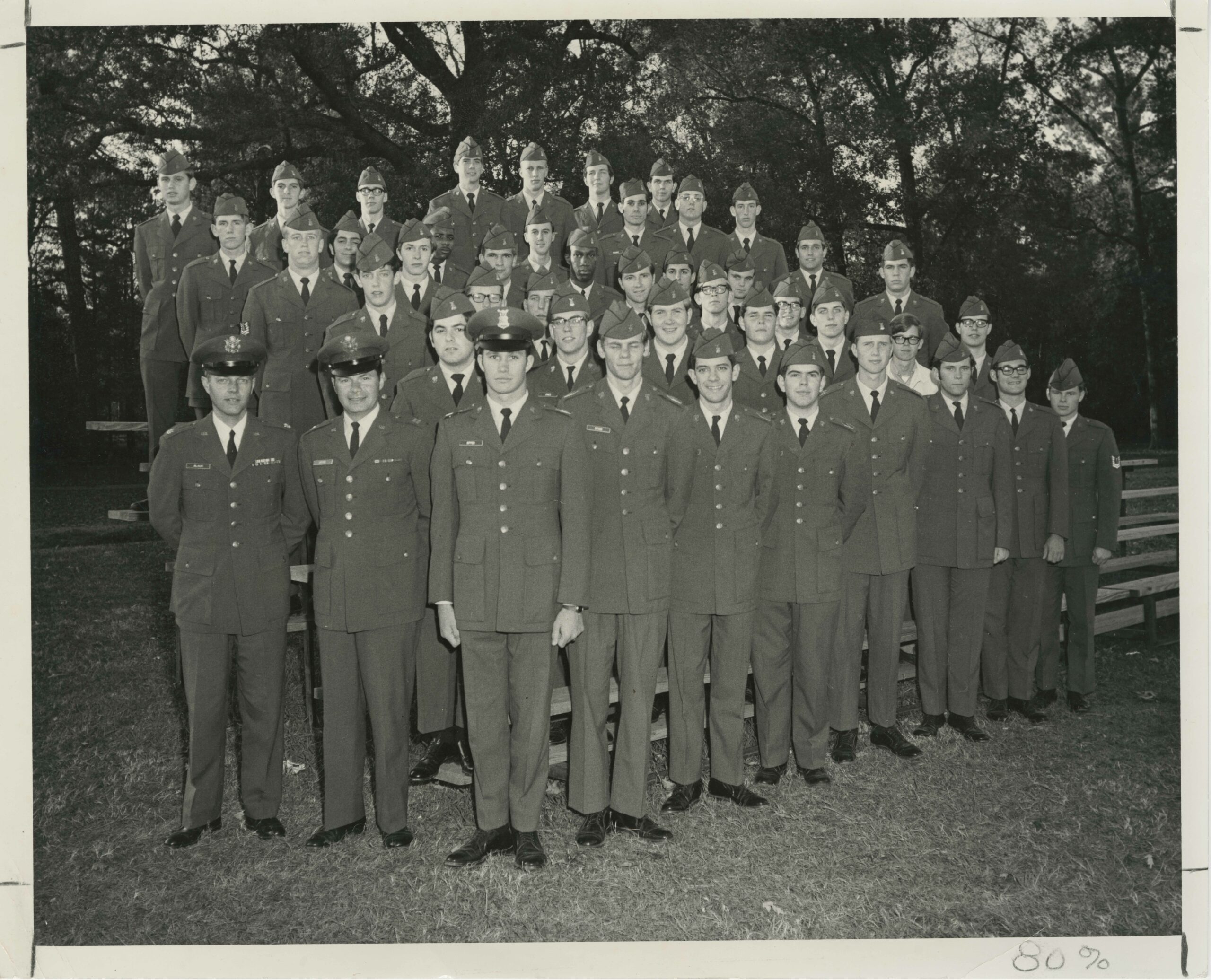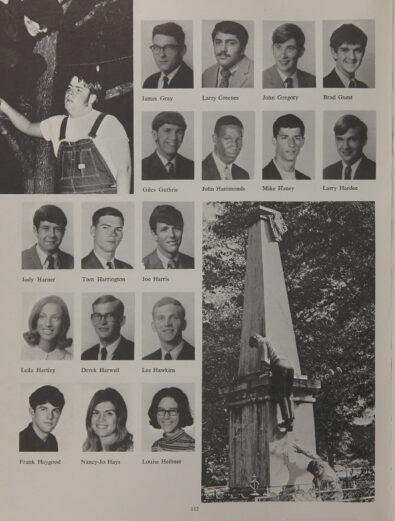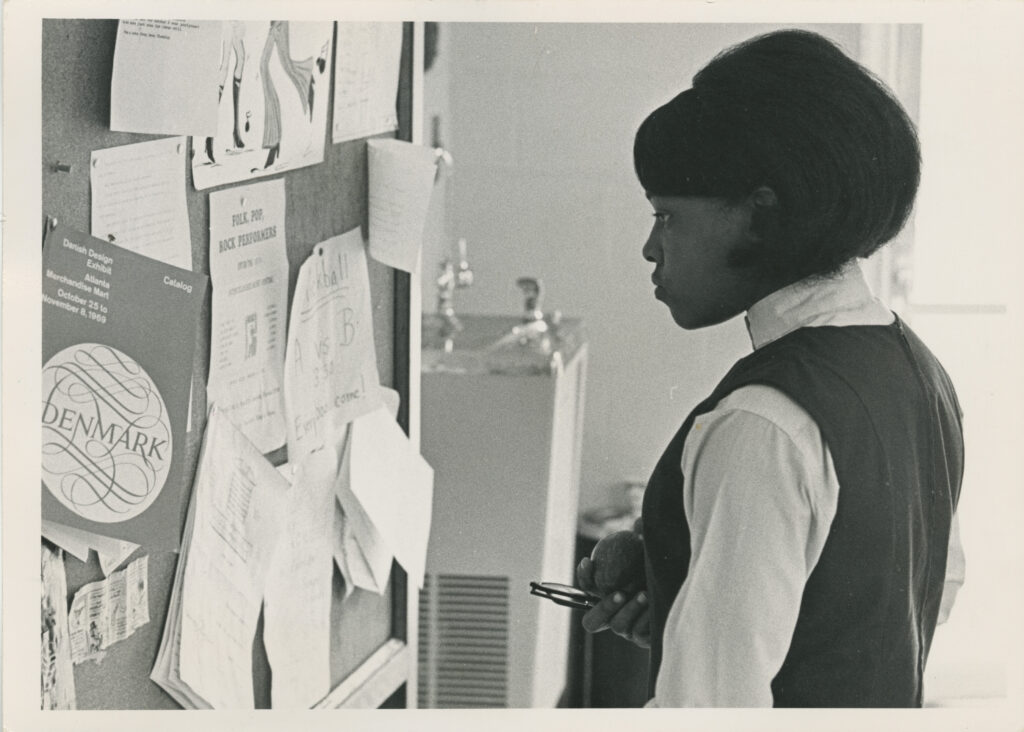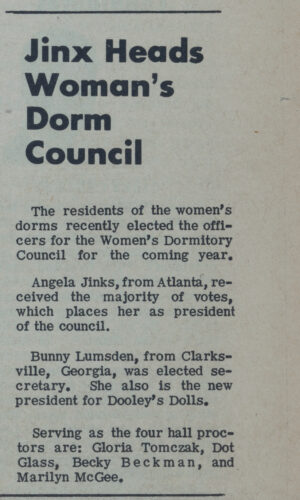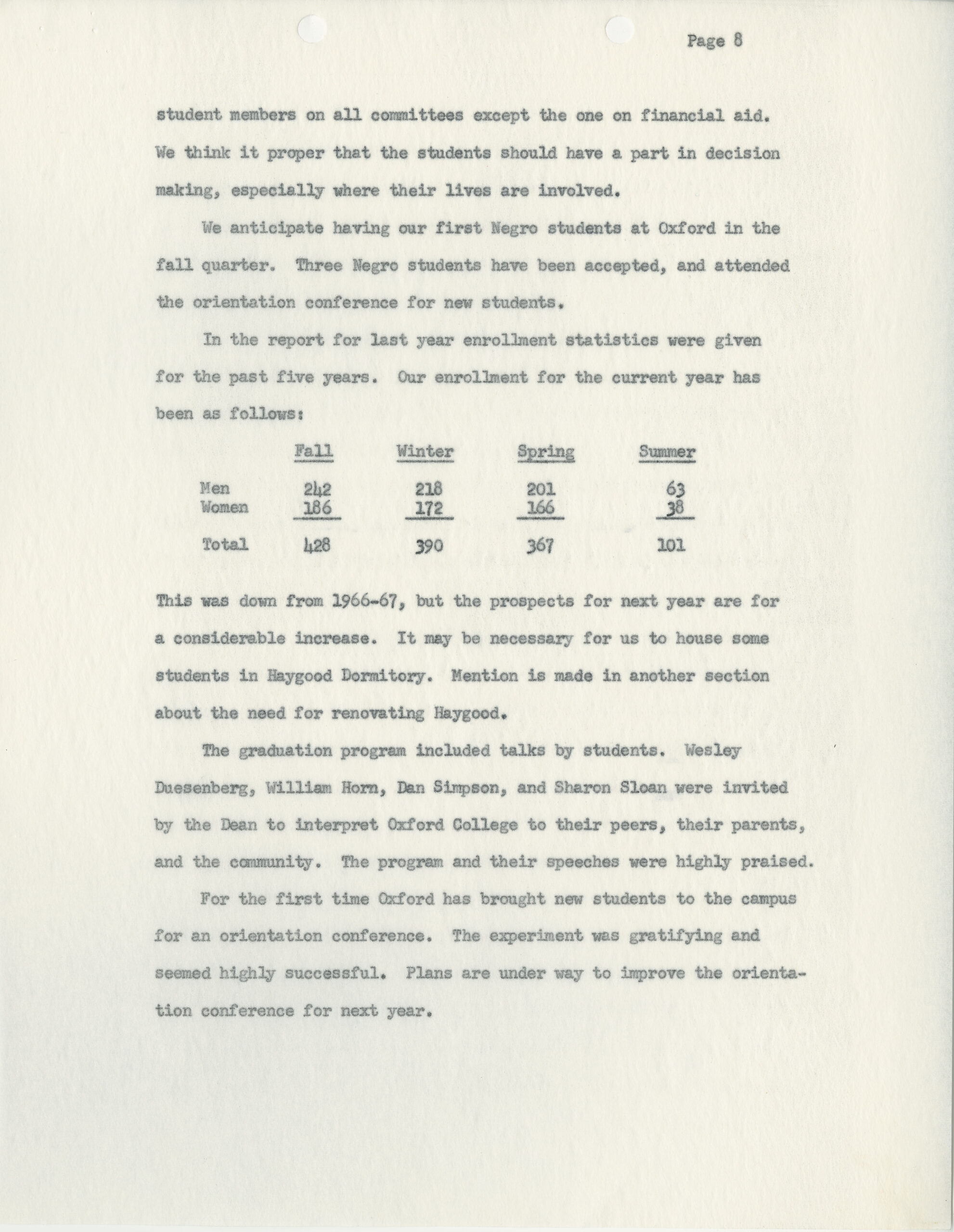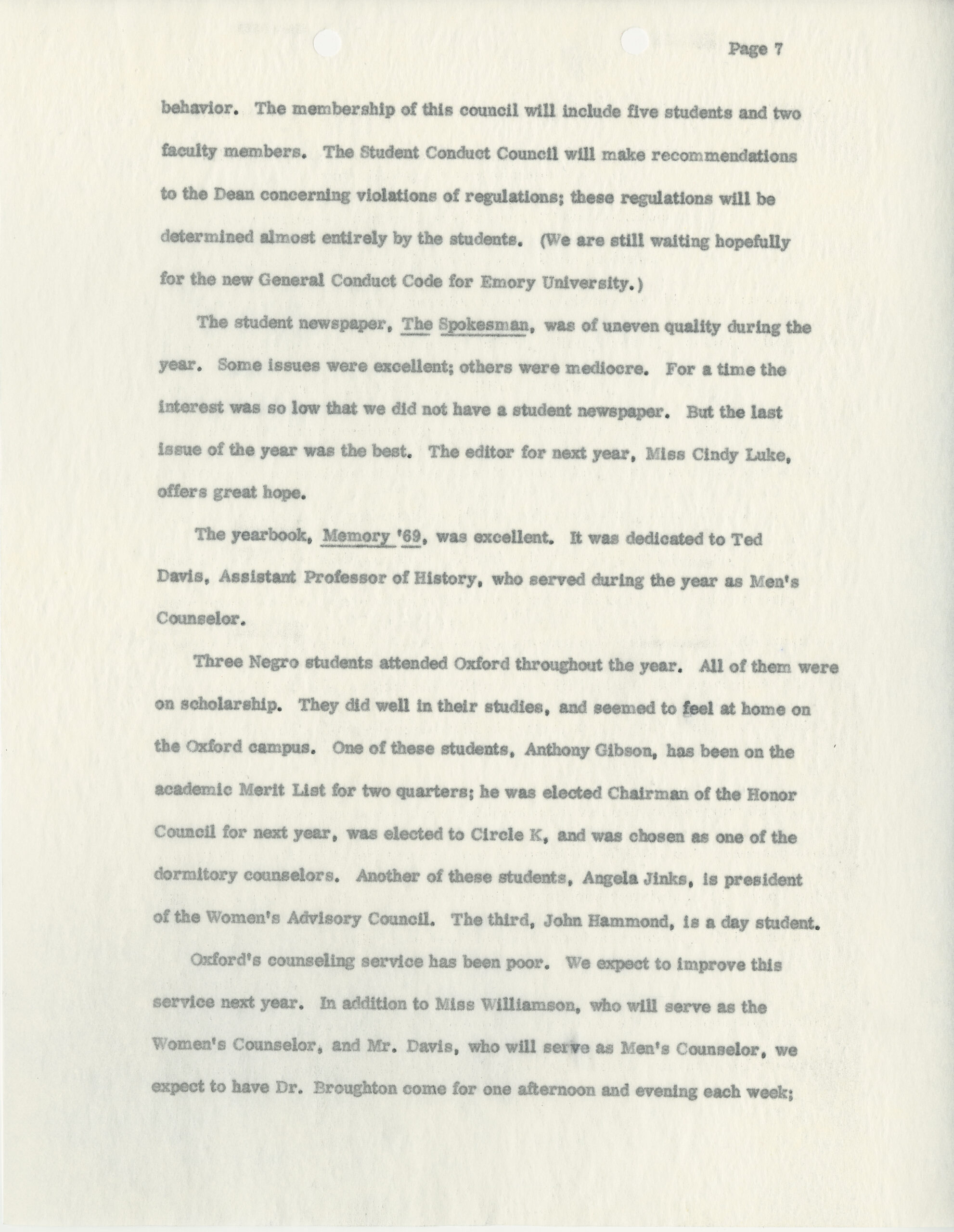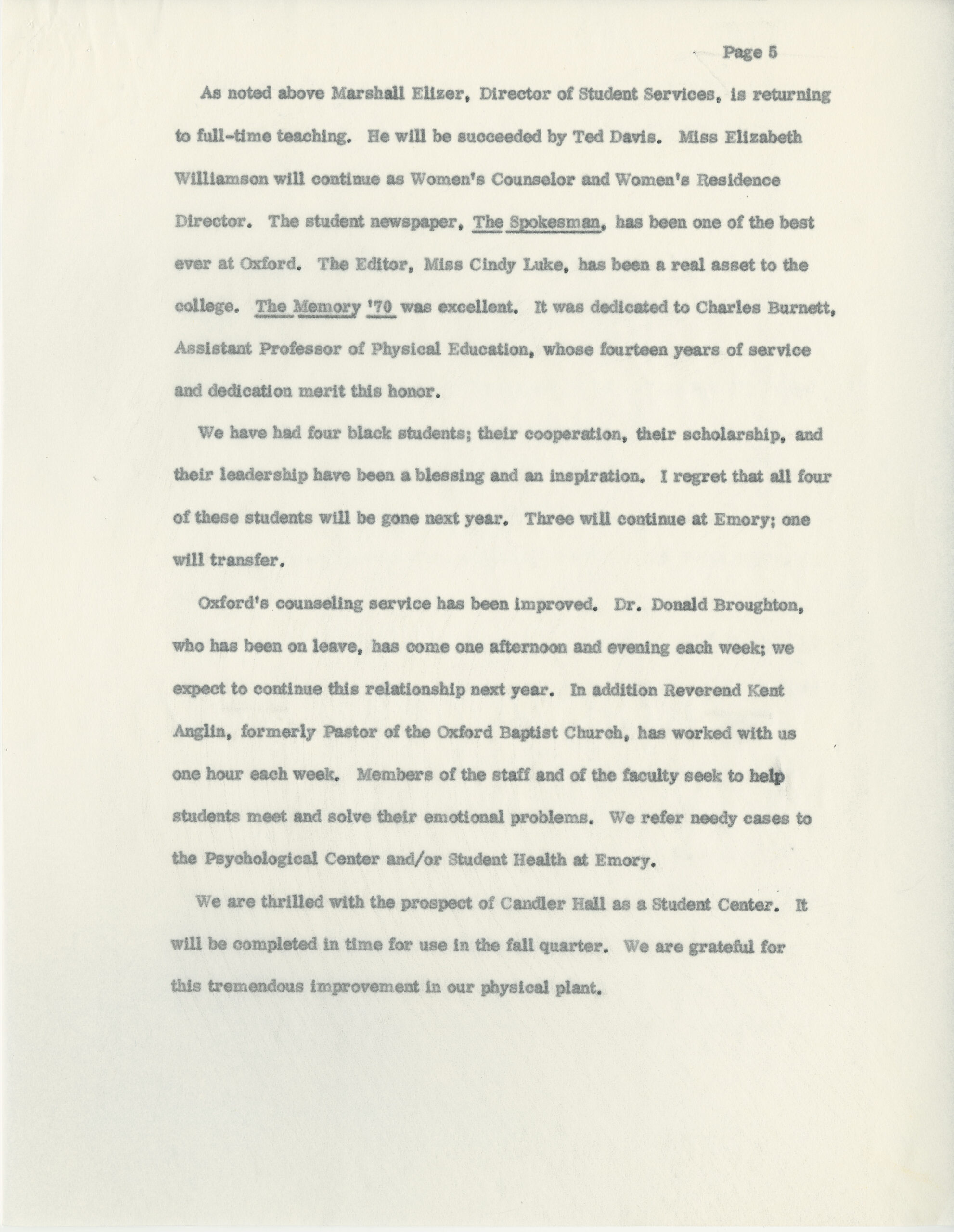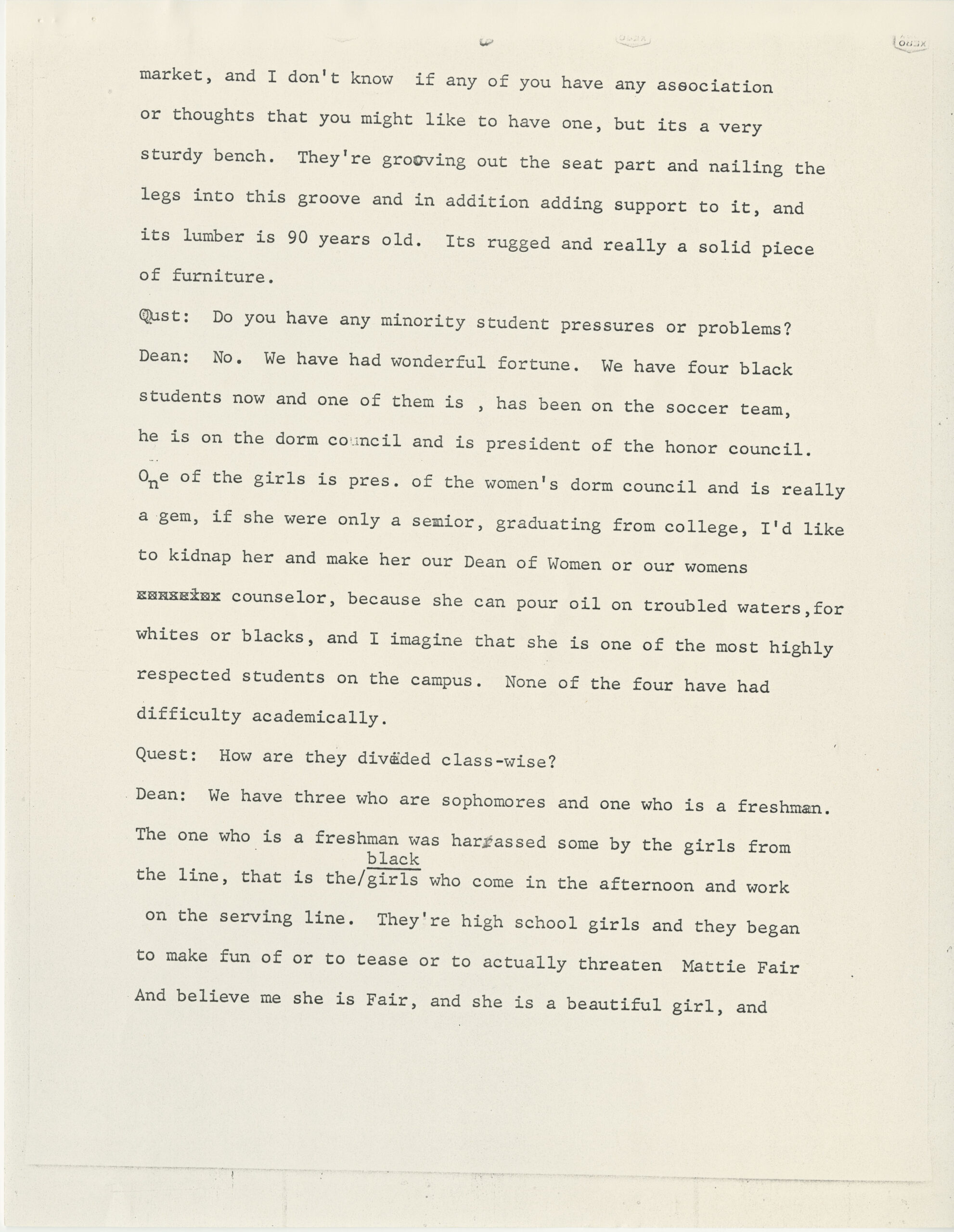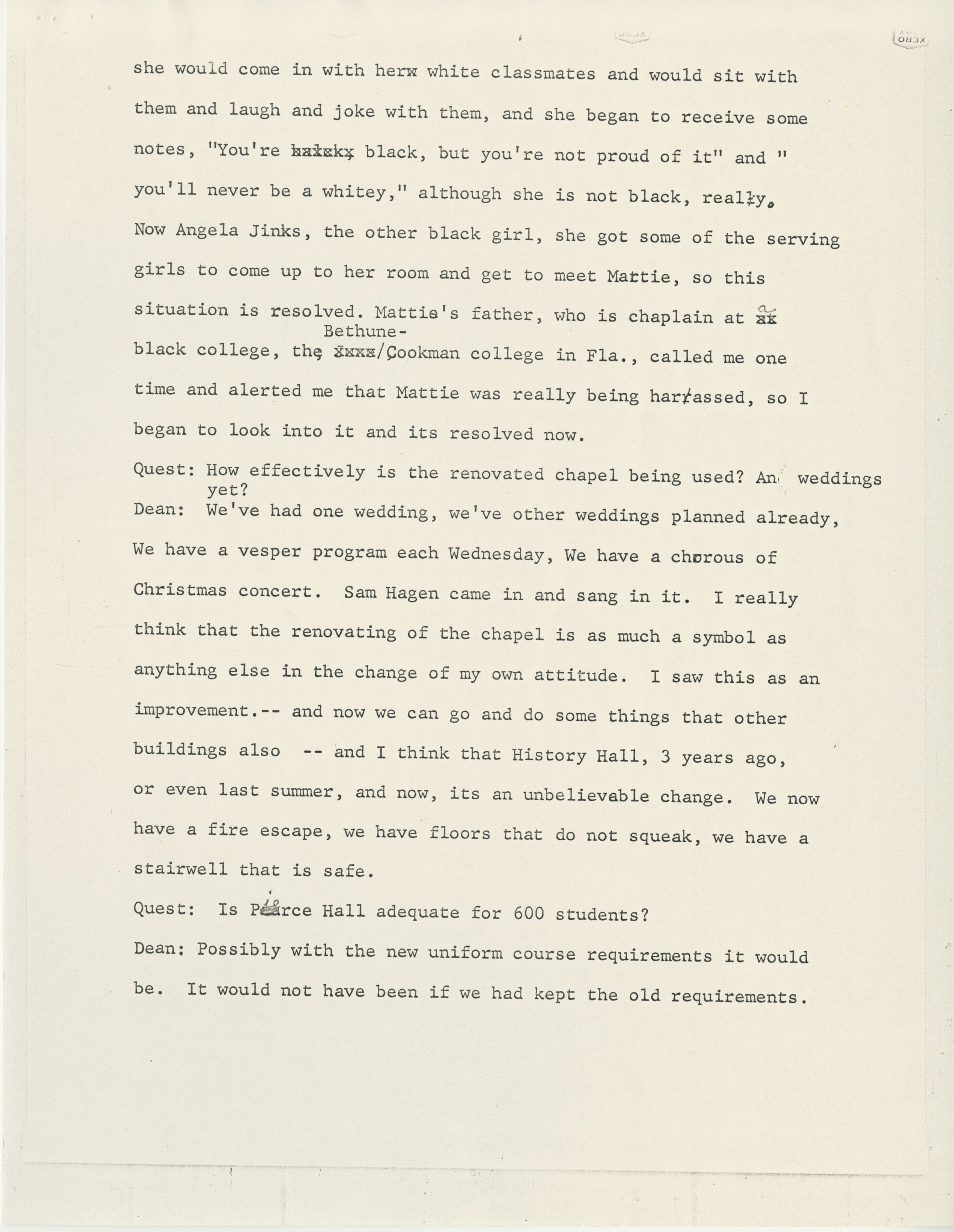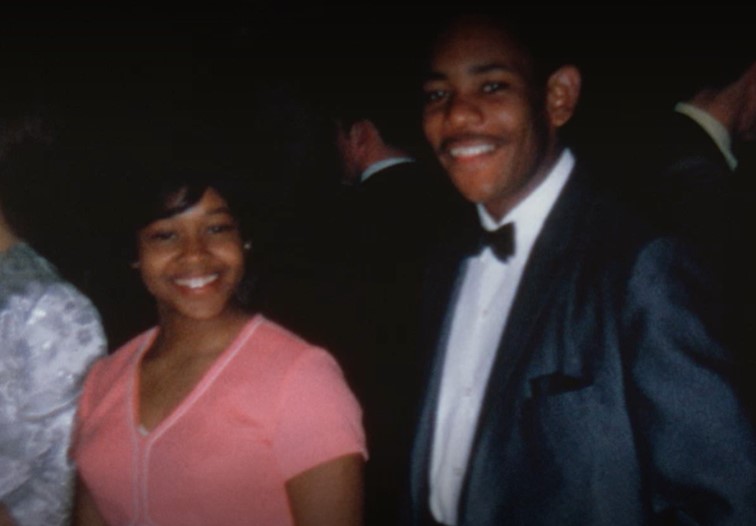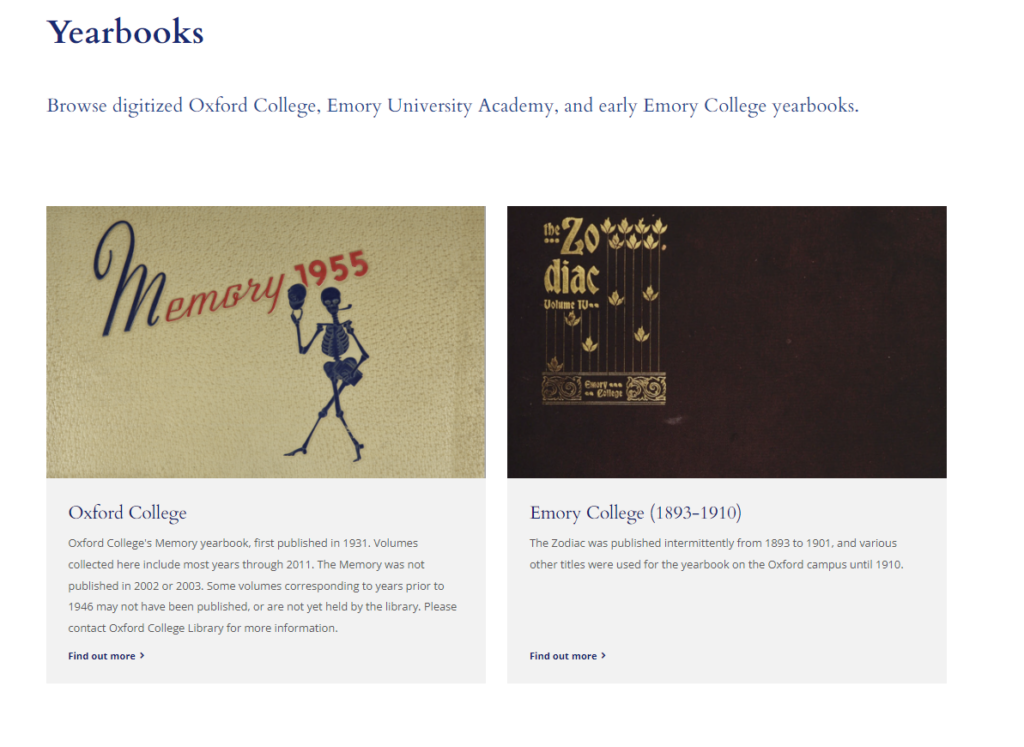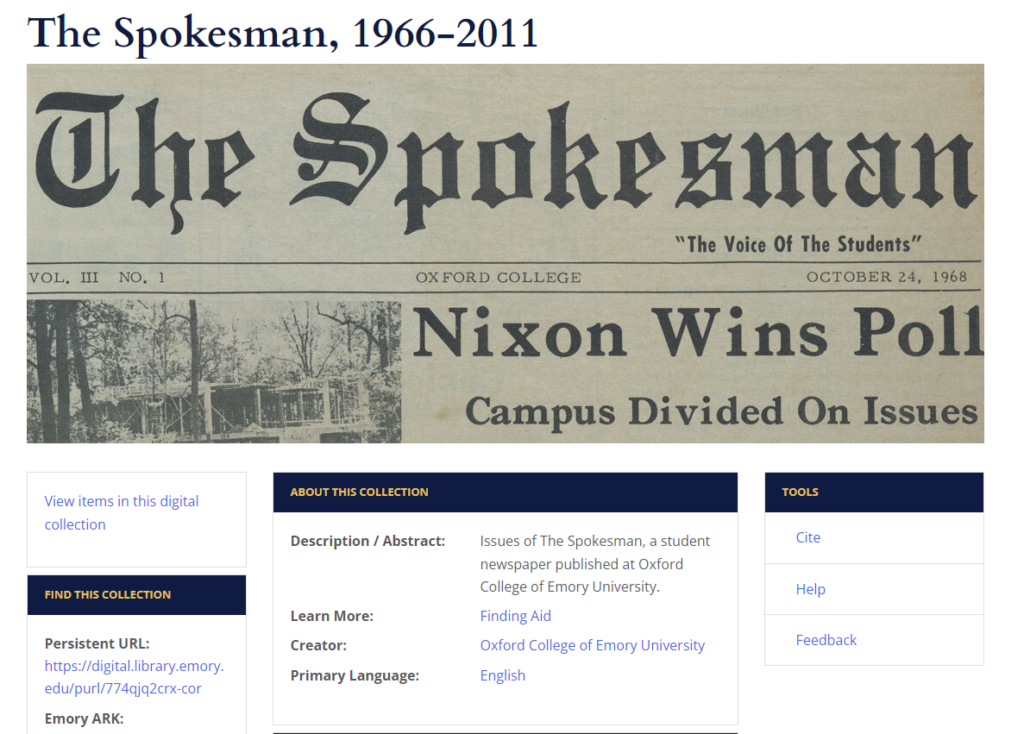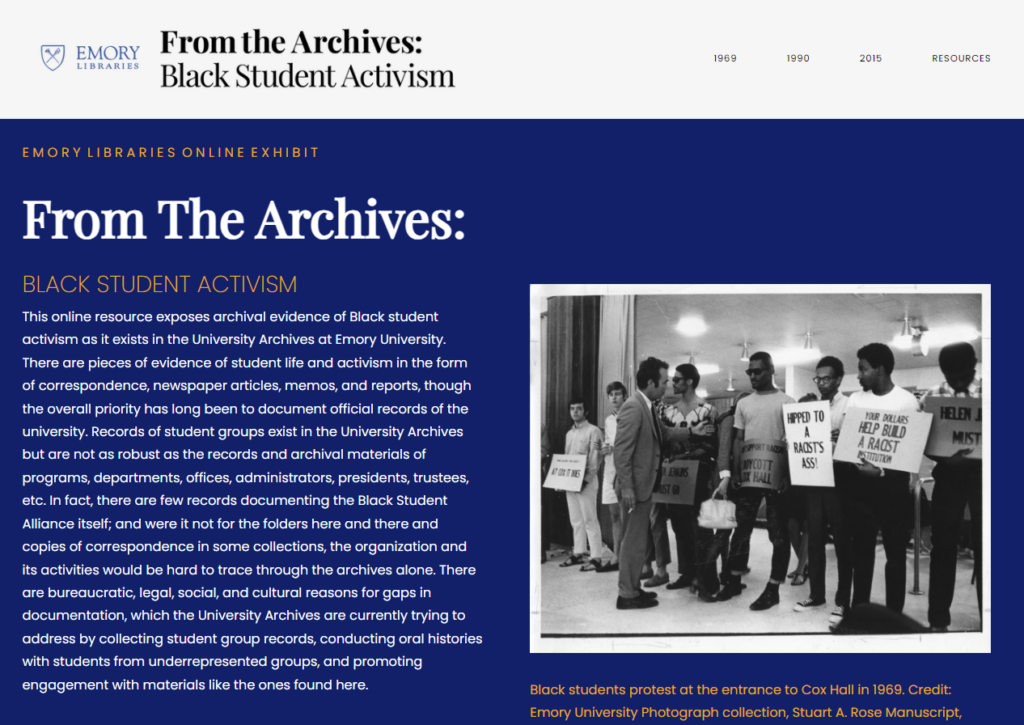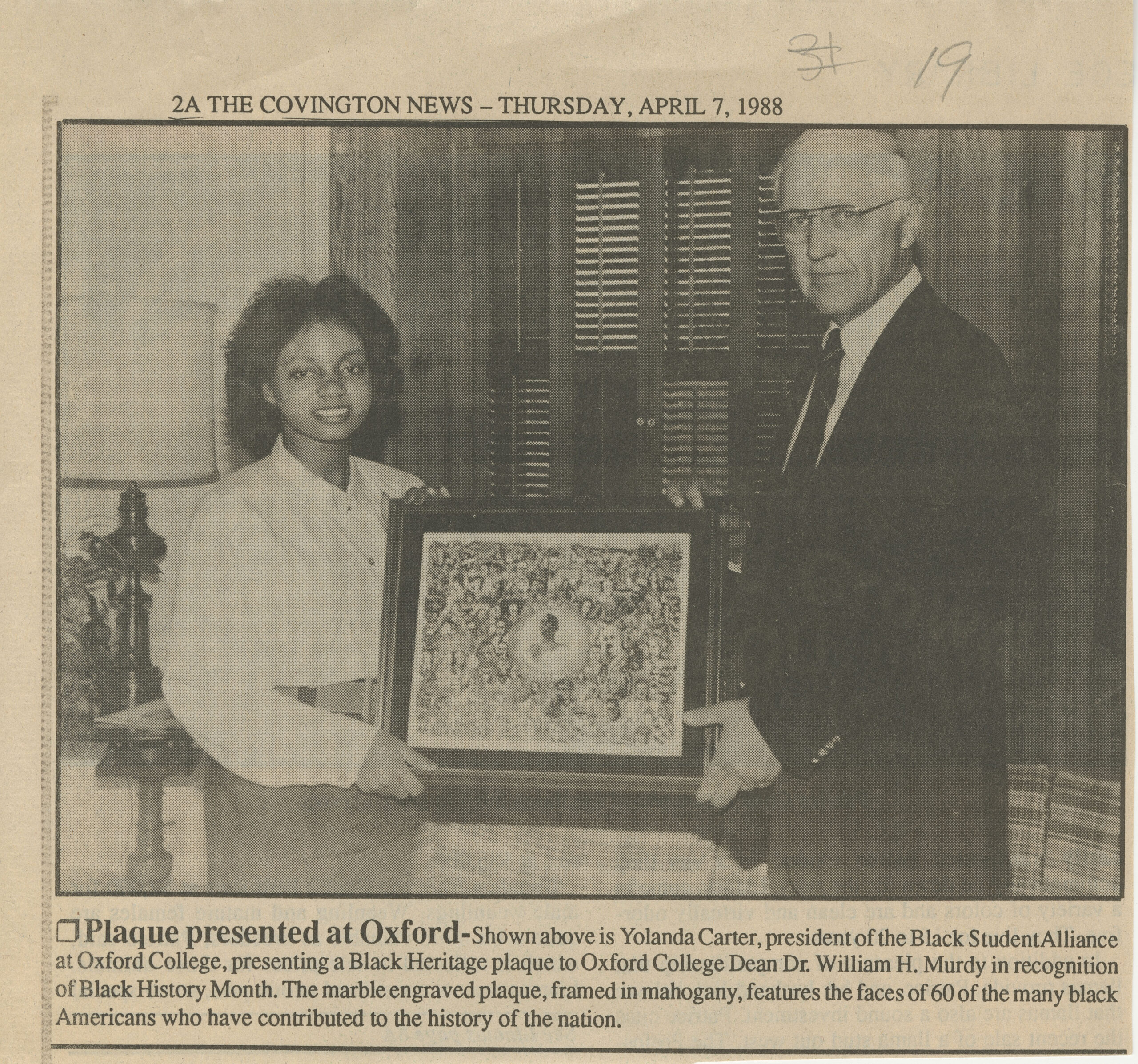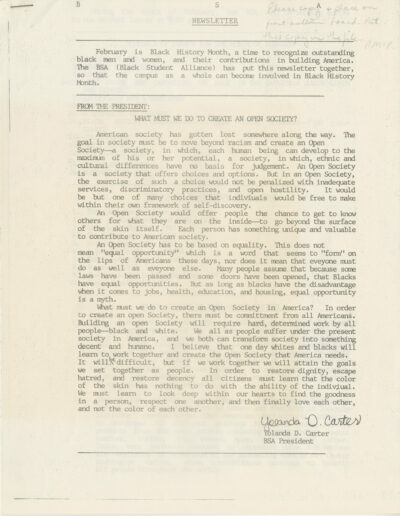Shifting Identities
An institutional archive like the Oxford College archives is the product of deliberate choices made by staff across the college, who decide what materials to include and what materials to exclude. The Oxford College Library’s staff regularly collects material retained by divisions and departments across campus according to a detailed records retention schedule, as well as material that is historically relevant to the college that falls outside those retention rules. However, those rules and processes have not always accounted for the variety of records produced at all levels of the college, or prioritized the collection of records documenting the activities of individuals and groups that have made a significant impact on campus culture.
Archives are further influenced by many external and internal factors, including major institutional goals, evolving professional guidelines, and storage considerations. However, individual biases also impact archival collections. College employees transferring records, and archivists and other library staff processing and maintaining them, make decisions influenced by their own beliefs, values, and prejudices that ultimately determine which records are preserved and how they are made accessible. The work of constructing narratives based on archival collections is impaired by collecting practices that, both intentionally and unintentionally, lead to historical gaps and archival silences. As you look at the sources below and throughout this exhibit, consider whose voices are missing.
Looking at the sources below, consider:
- How do you think the attitudes and values held by university officials influenced narratives of the experiences of Black students?


